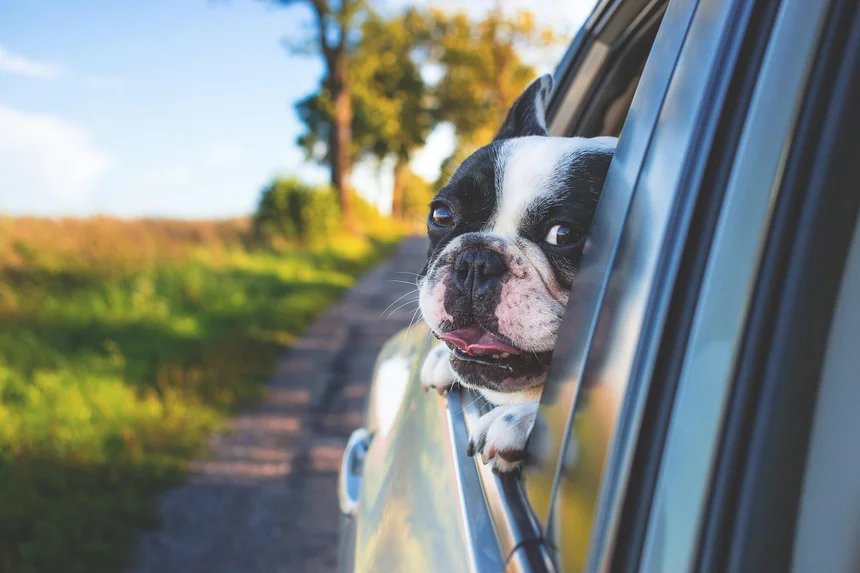Does Insurance Follow the Car or the Driver? Unraveling the Truth Behind Auto Coverage
- Apr 18,2025
Does insurance follow the car or the driver? The answer is: insurance generally follows the car first. This means that if you're driving someone else's vehicle and an accident occurs, it's usually the car's insurance that kicks in before your own. Understanding this can save you from a lot of confusion and potential financial headaches. I know many of us have found ourselves in a situation where we borrow a friend's ride for a weekend getaway, and the question of coverage suddenly looms large. So, let’s dive deeper into the details to ensure you’re fully informed about how insurance works when you're behind the wheel of someone else's car. 🚗💡
E.g. :5 Essential Tips for Affordable Car Insurance in Tampa (2025 Guide)
- 1、🚗 Car Insurance 101: Does It Follow the Car or the Driver?
- 2、🔍 Digging Deeper: The Fine Print Matters
- 3、💡 Smart Insurance Strategies
- 4、🤔 Common Questions Answered
- 5、🎯 Final Thoughts: Be Insurance-Savvy
- 6、FAQs
🚗 Car Insurance 101: Does It Follow the Car or the Driver?
1. The Great Insurance Debate
Picture this: you're about to borrow your best friend's car for a weekend road trip. Suddenly, a thought hits you - "If I crash this thing, whose insurance pays?" 🤔 This is one of the most common questions in auto insurance, and the answer isn't always straightforward.
Here's the deal: most standard policies follow the car first, then the driver. That means the vehicle's insurance is usually primary, but your personal coverage might kick in as backup. Think of it like a safety net - the car's insurance catches you first, and your own policy is there just in case.
2. When You're Behind Someone Else's Wheel
Let's break down what happens in different driving scenarios:
| Situation | Primary Coverage | Secondary Coverage |
|---|---|---|
| Borrowing a friend's car | Friend's insurance | Your insurance (if needed) |
| Rental car | Rental company's insurance | Your credit card benefits |
| Company vehicle | Employer's policy | Your personal policy |
But wait - did you know that some states have "permissive use" rules? That's insurance-speak for "if you had permission to drive the car, you're probably covered." However, there are always exceptions, which brings us to...
🔍 Digging Deeper: The Fine Print Matters
 Photos provided by pixabay
Photos provided by pixabay
1. The Named Driver Dilemma
Here's a fun fact that might surprise you: some policies only cover drivers specifically listed on the policy. So if your cousin lets you borrow their car but you're not on their insurance, you could be in for a nasty surprise if something happens.
Pro tip: Always ask two questions before driving someone else's car:1. "Am I covered under your policy?"2. "What are your coverage limits?"
2. When Coverage Gets Complicated
Imagine this scenario: You borrow your neighbor's car to run to the store. On the way, a deer jumps out (because nature has terrible timing). The repairs cost $5,000, but your neighbor only has $3,000 in coverage. Now what?
This is where your insurance might come to the rescue! Many policies have something called "excess coverage" that can help when the primary insurance isn't enough. But - and this is a big but - not all policies work this way.
💡 Smart Insurance Strategies
1. The Rental Car Conundrum
Ever stood at the rental counter wondering if you should buy their expensive insurance? Here's a secret: you might already be covered!
Many personal auto policies extend to rental cars, and some credit cards offer rental coverage too. The key is knowing what you have before you need it. I once saved $200 on a week-long rental by declining their insurance - all because I checked my credit card benefits first!
 Photos provided by pixabay
Photos provided by pixabay
1. The Named Driver Dilemma
Let's play a quick game of "What if..."
What if you let your unlicensed teenager drive your car? Bad news - most policies won't cover this. Insurance companies take driver qualifications seriously for good reason.
What if you frequently borrow cars? Consider adding "non-owned auto" coverage to your policy. It's like an umbrella that protects you when you're driving vehicles you don't own.
🤔 Common Questions Answered
1. "Does my insurance cover other drivers?"
This depends entirely on your policy. Some automatically cover anyone with permission, while others require you to list household members. The only way to know for sure? Crack open that policy document or give your agent a call.
2. "What about ride-sharing?"
Ah, the modern twist! If you drive for Uber or Lyft, your personal policy probably won't cover you while you're working. Most companies offer special ride-share coverage - definitely worth looking into if you're making money behind the wheel.
🎯 Final Thoughts: Be Insurance-Savvy
 Photos provided by pixabay
Photos provided by pixabay
1. The Named Driver Dilemma
Always have "the talk" before taking the keys. A quick insurance conversation can prevent major headaches later. As my dad used to say, "It's better to ask permission than beg forgiveness - especially with insurance companies!"
2. Regular Policy Check-ups
Make it a habit to review your coverage annually. Life changes - new cars, new drivers, new jobs - and your insurance should change with it. Set a calendar reminder so you don't forget!
Remember, understanding whether insurance follows the car or the driver puts you in the driver's seat (pun intended) when it comes to protecting yourself on the road. Stay safe out there! 🚦
In wrapping up our discussion on whether insurance follows the car or the driver, it's clear that understanding this can save you from unexpected financial headaches. Most of the time, the car's insurance is the primary coverage, meaning if you borrow a friend's ride, their policy typically kicks in first. However, your personal insurance can act as a backup when necessary.
It's essential to know the specifics of your coverage, especially when you might be driving someone else's vehicle. Never hesitate to ask questions about what’s covered before you hit the road! 🚗💨
With my own experiences and insights, I've learned that keeping informed about your auto insurance can empower you to make smarter decisions on the road.
So, let's take this a step further: have you thought about how your driving habits might change the insurance game? For instance, if you frequently borrow cars, consider adding non-owned auto coverage. This little adjustment can provide you with extra peace of mind while driving vehicles that aren't yours. And remember, whether you're renting a car or borrowing from a friend, always check your current policies and benefits first! This proactive approach not only enhances your protection but can also save you some serious cash. So, stay curious, keep those conversations going, and drive safely! 🛡️🚦
E.g. :Does My Car Insurance Cover Other Drivers? | Allstate
FAQs
1. Does car insurance follow the car or the driver?
Great question! Generally, car insurance follows the vehicle first, meaning the car's insurance is usually the primary coverage. So, if you borrow a friend's car, their insurance would typically kick in first if something happens. Your personal insurance may serve as a backup, helping cover any gaps. It's important to know this because it can save you from unexpected expenses in case of an accident.
2. What if I borrow a car that's not insured?
If you're borrowing a car that isn't insured, you could be in a tough spot. Most insurance policies only cover cars that are properly insured. It's crucial to confirm with the car owner that they have valid insurance. If not, I recommend you avoid driving that car altogether to protect yourself from financial liability.
3. How does rental car insurance work?
When renting a car, the rental company's insurance is usually the primary coverage. However, many personal auto policies extend to rental cars, which could save you money. Before you rent, check your policy details or reach out to your insurance agent. This way, you can make an informed decision and possibly avoid the rental company's expensive insurance fees.
4. Can my insurance cover me if I drive for a ride-sharing service?
If you drive for Uber or Lyft, your personal auto insurance likely won't cover you while you're working. Most ride-sharing companies offer specific ride-share coverage that you may need to add to your policy. It's definitely worth exploring to ensure you're fully protected while earning money on the road.
5. What should I do if I'm unsure about my coverage?
If you're ever in doubt about your insurance coverage, the best step is to review your policy or talk to your insurance agent. They can clarify what your policy covers, especially if you frequently borrow cars or drive rentals. Keeping the lines of communication open will help you stay informed and prepared for any driving situation!
